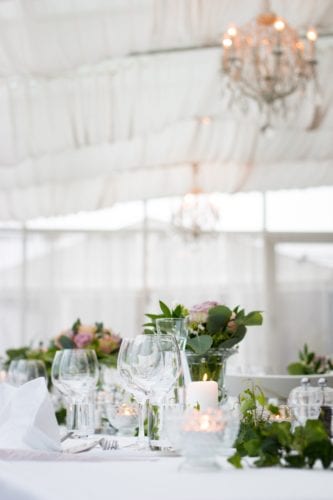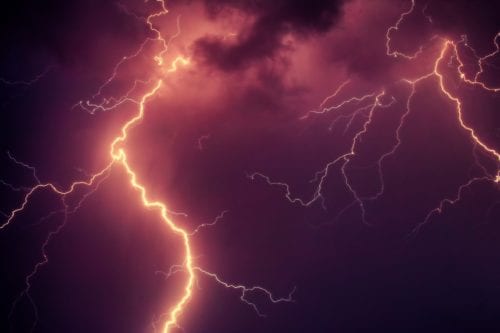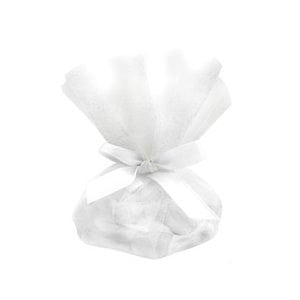Getting the party started in the great outdoors is easy with our guide to buying or renting the perfect party tent.
Often the most beautiful setting to be found for any celebration is the great outdoors. Finding the perfect party tent can guarantee a good time will be had by all no matter the weather. But does it make more sense to rent or buy the party tent of your dreams? The Budget Diet has taken a closer look at the good, bad and ugly of party tents.
When planning a special celebration for your family or business, there is often no better setting than a fete in mother nature. You can provide a perfect backdrop for photos or games, and customize your event setting to reflect the mood or theme of the event. For example, a rustic wedding could take place at a local farm. A family corporate event could take place at a local park where families have room to play games or enjoy the playground.
By choosing to use a tent as part of your event you are able to eliminate the worry of bad weather washing out all your best intentions.
The choice to use a tent at your next party is only the first of many decisions that go along with an outdoor event. The most important being– does it make sense to buy or rent your tent?

Buying vs. Renting:
There are a few key questions that you can ask yourself to determine if it makes more sense to buy or rent a tent for your entertainment needs. Buying a tent may mean a bigger investment up front, but it could work out to less cost over a few years. While renting may be a lower amount initially but spread out over many more transactions it could cost more in the end. To figure out which approach makes the most sense for you, ask yourself the following questions:
How many times am I going to use the tent in a year? Generally, if you want the purchase to make fiscal sense, you should be using the tent multiple times each year.
How long will I be leaving the tent up? Are you planning a one or two-day event or will the tent be up for a longer period? Short periods lean towards a rental option while long commitments are better for buyers.
How much work are you willing to do? Will you be able to set up the tent yourself or will you need to hire some help? Will you be willing to do the maintenance on the tent yourself or would you rather have someone else clean and repair the tent? Of course, this is one of the many ways to get a great workout without hitting the gym.
What shape do you need the tent to be in? Buying an older tent can be a cost-cutting measure, but it will not necessarily be in pristine condition like a new tent.
Do I need the same size tent for every function? Will one tent be able to service all the functions you plan to host?
What size do you need? The cost of a tent can vary wildly based on the size. Smaller tents are lower cost, easier to clean and store while large tents could require specialty storage and transportation costs.

Venue Considerations:
Before you start looking at types of tents to purchase or rent, it is important to know what factors will determine what type of tent will and will not work at your chosen venue. If you are planning on using your tent at multiple locations, you want to consider the versatility of your structure. Ask your venue the following questions:
What type of ground will the tent be on? This is an important question because many types of tents need to be staked. While it is still possible to stake a tent in asphalt or concrete as well as dirt or grass, it will require repairs after the event. If you are bringing your own tent, you will be responsible for the staking and repair of the area as well as setting up and taking down the tent. Even with a promise to repair some venues will not allow staking.
How big of an area do we have available to set up the tent? This will allow you to determine the type of tent you can use (frame tents have some size restrictions, and pole tents have a larger installation footprint).
What will the tent be used for? Will the tent be used for dining only or will it also house the bar and the dance floor? Knowing what you want to use the tent for will better help to determine the size and type of tent you need.
What time of day will the event take place? This can help determine what your electrical needs. Buyers should plan for every scenario as they will likely want to use their tents at many different times of the day as well as all day events.
What time of the year you be using your tent? This can help to determine if you would like a more breathable tent without sidewalls or if you may need to add heating elements.
The number of guests: Do you need a smaller tent for a family get together or a large tent to host corporate events?
How to Decide What Size of Tent You Need:
Take your number of guests and multiply them by:
- 15 square feet for seating at tables
- 6 square feet for standing area or cocktail area
- 8 square feet for a wedding ceremony or guests seated at only chairs
- An additional 2 – 3 square feet for a dance area
- 25 square feet for people seated at a head table
Add those numbers together. If you need space for a DJ, coffee bar, gift table or another similar table, add 100 square feet for each.

Choosing the Type of Tent:
Now that you have a basic idea of whether it would be better for you to rent or buy a tent, let’s take a look at the different types of tents available. Before choosing the type of tent you want at your event, it is often essential to check with the venue. They can offer more insights into which type of tent will work best with your location.
Pole tent:
The pros: A good choice for budget conscious party planners, the pole tent is easy to transport, install, and is more economical than a similar sized frame tent. It is available in widths up to 80 feet or 24 meters.
The cons: Not as aesthetically pleasing as a frame tent, a pole tent has a center pole which can obstruct views inside the area. The installation footprint is larger than a frame tent and staking is essential to keeping the tent and it’s area safe.
Frame tent:
The pros: Aesthetically pleasing, especially for formal events. There is no center pole so you can have nicer inside views in the tent. This freestanding tent allows for multiple layouts and floor plans.
The cons: Frame tents are harder to transport as they have more hardware and components. It also has size limitations with a maximum 40-foot or 12-meter width.
Pop-up canopies:
These tents are an affordable option for small areas. Easy to transport and set-up but it is essential to make sure that your tent is waterproof, not just water resistant to stay dry in all weather.
Cross Cable tents:
These tents feature a central high peak tube supported by cross cables. It is also known as a high peak tent. The top of the tent can be branded for your business, and the tent can also support walls. These tents can be grouped together or combined with a frame tent. These are an excellent option for a smaller event.
How to Choose Your Tent Fabric:

When purchasing a tent, it is essential to look at the specifications of your fabric choice. Consider these much like you would look at the features of a car. The fabric needs to look good. It also needs to have the features necessary to ensure that your tent will stand the test of time. There are some essential elements that while they may cost more, will likely result in a longer tent life. When looking at tents, it is crucial to look for fabric that offers the following:
- Wick resistance-Make sure your fabric is compliant with the Fire Marshal’s Guidelines for your state
- Resistance to UV degradation
- Mold and Mildew Inhibitors
- Low cold temperature flexibility
- Color-Should you go with the classic white that may show more stains or with a darker and more forgiving color?
The Importance of an Antimicrobial Fabric:
An antimicrobial kills or slows down the growth of microorganisms which can include viruses, bacteria and especially important for tents-mold and mildew. Adding this protective layer adds protection that will protect both the guests and your investment.
How Easy is it to Clean?
Cleaning your tent is an imperative part of its maintenance.
Storing your tent without cleaning or using improper cleaning products or tools can reduce the life of your tent.
Make sure to ask about the durability and stain resistance of your fabric. Some fabrics can be cleaned with mild soap and water while others require specialized detergents.
Hidden costs of owning a tent:

Before you purchase your own tent, you must consider some of the costs that may pop-up after your purchase. These costs will vary depending on the type of tent chosen as well as the size of your tent.
Installation costs: Depending on the size and type of the tent you purchase you may find yourself in a position where you need to hire some help to install your tent each time you want to use it. If you are a business using your employees for set-up, don’t forget to consider their hourly rate in your decision to rent or buy.
Removal and transportation: Larger tents may require trucks for transportation and a crew to break down your tent.
Tent storage: Larger tents may require specialized storage if your home or business does not have a large storage facility.
Maintenance: Maintaining a tent is not a simple task, especially if you want your investment in entertaining to last. Cleaning your tent is not only a large investment of time, but you also need to invest in the proper cleaners and protective sprays. Some tent supply businesses will offer commercial washing of your tent, or you can wash it yourself. Consider the cost of that service versus the cost for you to use employees or spend your time washing yard after yard of material by hand.
You also need to consider repair, replacement as well as liability for storm damage.

How to Keep Your Guests Safe When Using a Tent
Of course, tents can be a beautiful way to protect your guests from the elements at an outdoor event, but if used improperly your tent could be a hazard. For example, while many consider using a tent in case of rain, in the case of thunder and lightning, a temporary structure such as a tent is not a safe place to be. High winds can threaten the stability of a tent and lightning is attracted to large metal poles which provide a tent’s structure.
While storms are a huge consideration, those using tents at events must also consider the following:
- Obstructions
- Exits
- Location
- Wind exposure
- Access
- Anchoring stability
While many 10×10 tents can be free-standing, it is important to anchor them properly for the safety of everyone. This is especially important if there are weather or other concerns that could affect the stability of the tent.
Most tents will come with comprehensive guidelines for properly staking your tent. It is important to make sure that in the process of staking, you are not creating tripping hazards around your structure.
Minimize Your Safety Risk:
- Plant stakes directly into the ground and clip the stake at the base of the pole.
- Tie flags onto the tethers and stakes
- Tether weights with the lines that are clearly visible in both size and color. In this case, as it could be a physical hazard, it should be yellow.
- Place large potted plants around the stakes.
- Place crowd barriers or fencing around the stakes.
- Use orange safety cones.
- Use sandbag tent pole wraps.
- Run the tethers along the frame and stake directly into the surface.
- Use non-tethered weight plates at the base of the pole.
- Use tethered suspended or non-suspended tube or anchor weights that run along the tent frame.
- Make sure there are still clear pathways to walk safely around the tent.
How to Maintain Your Tent:
Choosing to buy a tent in a superior material or with a protective topcoat does not mean that you will not have to perform regular maintenance. Several steps must be taken every time you plan to use your tent for an event.
- When setting up your tent, you want to first inspect for any rips or tears. These could have occurred during its previous use or while in storage.
- You want to select an area to set up the tent that is a safe distance from any hazards.
- While in use, be sure to remove any dirt or debris to keep the tent clean.
- Inspect for rips, tears and other damage before you take down the tent.
- Use a non-detergent soap and a soft, non-abrasive sponge to clean your tent.
- Your tent must be completely dry before it is put in storage. This is to help prevent any mold or mildew build up.
- Store your tent in a clean, dry place.
- Consider the additional protection of a UV or moisture resistant top coat spray. This is beneficial even for tents that have been pre-treated with a top coat. You can find these sprays at your local tent supplier.
Our Conclusion
Purchasing a tent is a significant investment that requires careful thought and consideration.
One needs to consider the potential transportation, installation, storage and maintenance costs as well as the safety issues that come along with owning this outdoor structure.
At the same time, by choosing to rent instead of own your tent, you could find yourself spending more money on rental fees. Purchasing a tent also allows you to personalize the tent with your company’s brand, which can be particularly beneficial at corporate or trade show events.
Buying a tent is a huge responsibility but with regular use and maintenance the payoff can be worth it.
Renting often means that the transportation, set-up and take down of the tent is taken care of. This allows for more time to focus on the important details of your event.
While there is no right answer for everyone, taking the time to evaluate the pros and cons of owning versus buying a party tent will ensure that everyone can come to the conclusion that makes the most sense for their situation. If you are in the market for a tent, perhaps you are ready for a career change as well. Check out our article on becoming or hiring a party planner!



